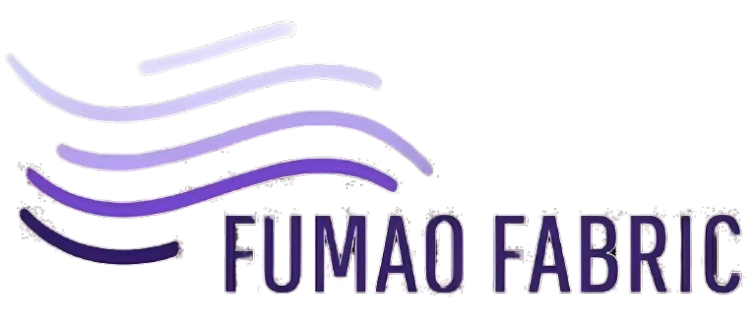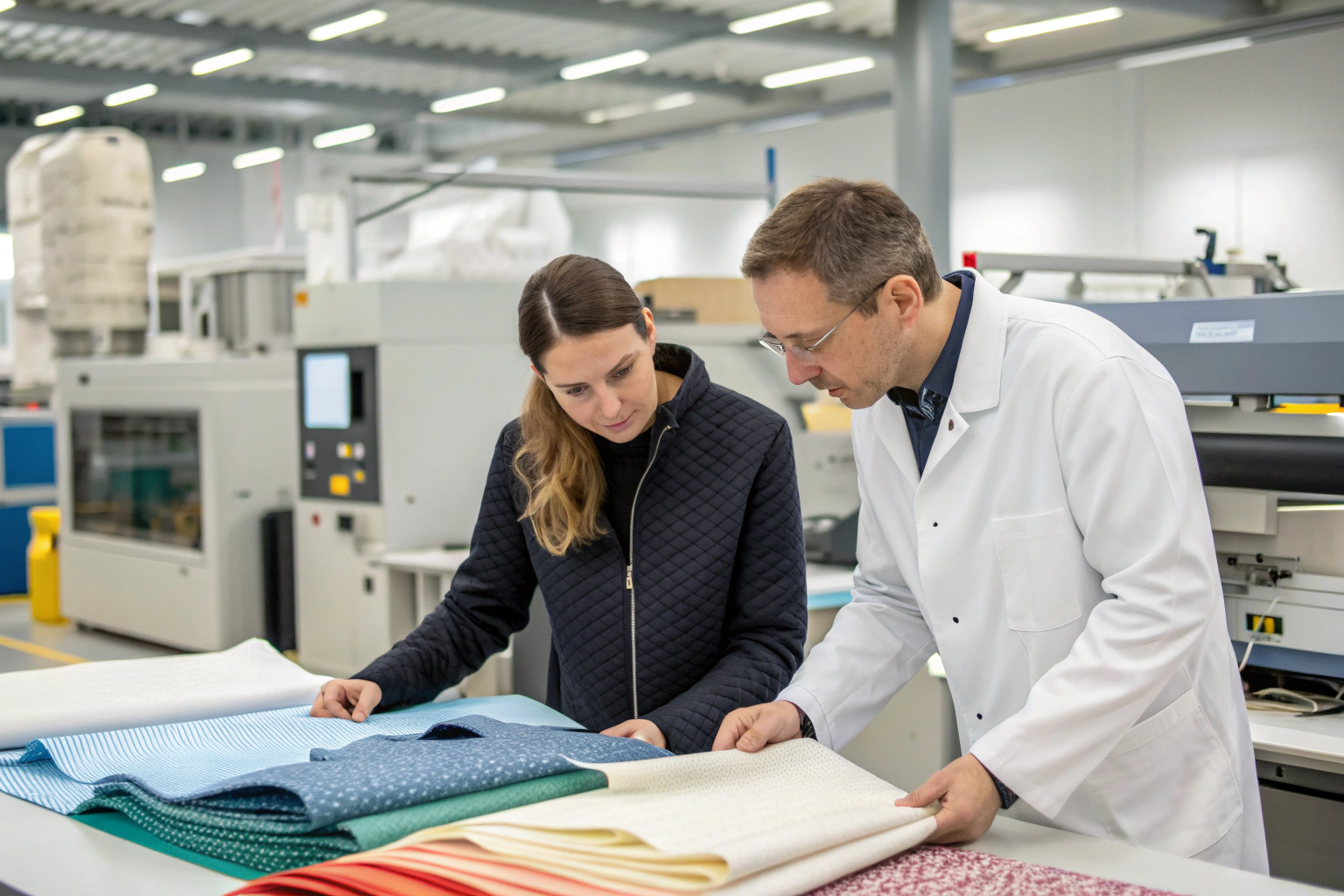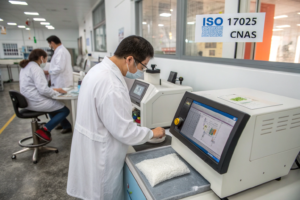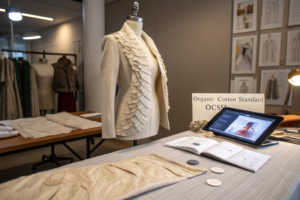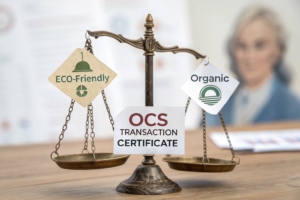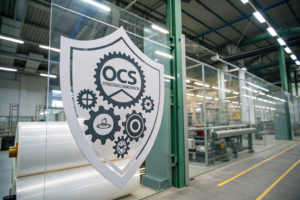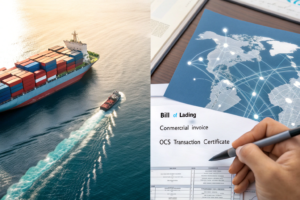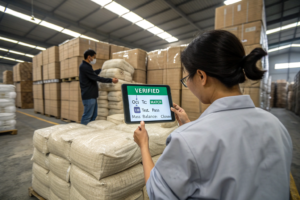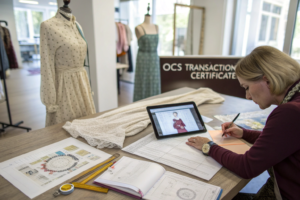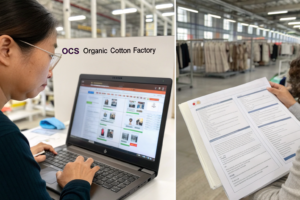When buyers in industries such as defense, healthcare, or chemical manufacturing face the challenge of finding safe protective textiles, the main frustration is uncertainty. Many suppliers claim their fabrics are "protective," but very few meet strict international standards like ISO 13994, which specifically tests fabric resistance against liquid chemicals under pressure. Without clear guidance, procurement managers risk paying for unverified fabrics, delaying production, or worse—exposing workers to dangerous environments.
The straightforward answer is that sourcing ISO 13994 tested fabrics requires focusing on certified suppliers, verifying third-party test reports, and ensuring the supply chain can deliver consistent quality under tight deadlines. This standard is not only about safety—it’s about regulatory compliance, global acceptance, and trust in the protective performance of the textile.
If you are searching for such specialized fabrics, you may wonder which markets to focus on, which certifications really matter, and how to avoid misleading claims. Let’s break it down step by step.
What is ISO 13994 Certification and Why Does It Matter?
ISO 13994 is the international standard that measures the resistance of protective clothing materials against liquid chemical penetration under pressure. This is critical in high-risk sectors where standard water-repellent fabrics are insufficient.
Fabrics tested under ISO 13994 provide documented assurance of barrier performance against aggressive chemicals. Buyers in defense, pharmaceutical, industrial cleaning, and petrochemical industries often specify this test in procurement contracts to ensure compliance with EU PPE regulations and OSHA requirements in the U.S.
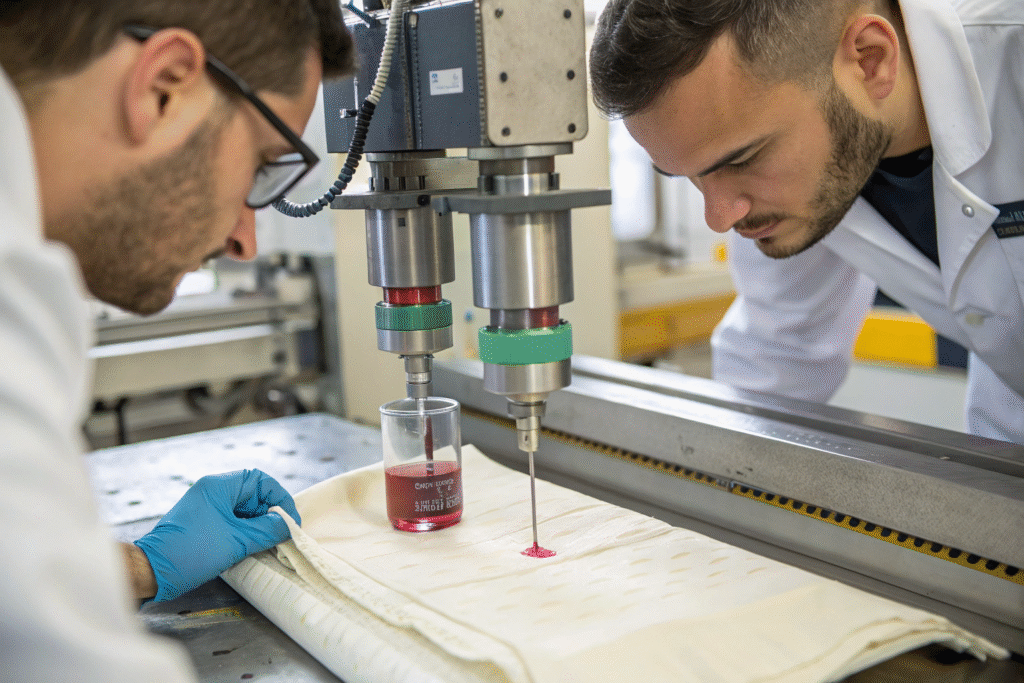
When comparing suppliers, you must differentiate between waterproof fabrics and chemical permeation resistant fabrics. For instance, standard PU-coated polyester may repel water, but only fabrics with specialized multilayer coatings, laminates, or membranes—like PTFE, PVC, or advanced aramid blends—can withstand the ISO 13994 test conditions.
How is the test performed?
- A liquid chemical is applied under specific pressure.
- The fabric is observed for penetration or permeation.
- Time and extent of resistance are measured.
This ensures the fabric can resist not only splashes but also prolonged pressure exposure, which is vital in real-world spill scenarios. For example, in a German petrochemical plant study, workers wearing garments tested only under simple splash resistance had a 35% higher incident rate compared with those equipped with ISO 13994 certified suits.
Why does it matter for sourcing?
Sourcing without ISO 13994 verification increases liability risks. For example, in the EU, protective clothing under EN 14325 requires ISO 13994 test results. Without it, shipments may be rejected at customs or procurement contracts canceled. A case in 2022 showed how a U.S. buyer lost $1.2 million in rejected garments because the fabrics were not tested against this specific ISO standard.
Helpful references: ISO Standards for Protective Clothing, OSHA PPE Chemical Standards.
Which Industries Require ISO 13994 Tested Fabrics?
Different industries mandate this certification depending on risk exposure.
Key sectors include:
- Chemical and Petrochemical Plants: For handling acids, solvents, and hazardous fluids.
- Pharmaceutical Production: To protect workers against strong disinfectants and active ingredients.
- Defense and Security: Military protective gear often requires ISO 13994 compliance.
- Emergency Response (HAZMAT teams): Firefighters and responders use such fabrics in chemical accident zones.
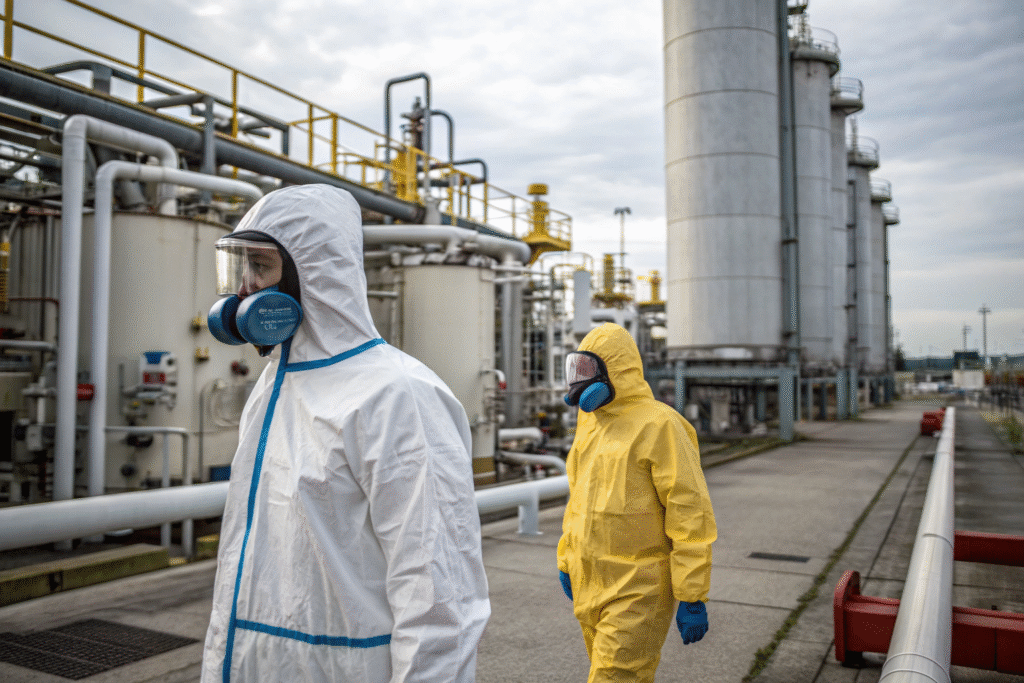
Who are the buyers?
Typically:
- Large procurement officers from chemical companies.
- Government tender buyers sourcing defense-grade fabrics.
- Safety equipment manufacturers producing protective suits, gloves, and boots.
For instance, in 2023 the European HAZMAT procurement budget allocated more than €240 million to chemical protective suits, where ISO 13994 fabrics were listed as a technical requirement. Similarly, U.S. federal contracts with the Department of Defense required permeation-resistant textiles for over 50,000 uniforms delivered to military bases.
Practical sourcing insight
Buyers should also confirm whether the supplier can integrate these fabrics into finished garments or only provide raw rolls. For instance, suppliers like DuPont or Lakeland Industries not only provide fabrics but also deliver finished protective clothing. This dual capability saves buyers from dealing with multiple vendors and reduces lead times from 60 days to as little as 35 days.
Where Can Buyers Find Reliable ISO 13994 Fabric Suppliers?
Finding genuine ISO 13994 tested fabrics requires narrowing your search to certified textile clusters and recognized manufacturers.
Main sourcing hubs include:
- China (Keqiao, Zhejiang) – The world’s largest textile cluster, where companies like ours (Fumao Fabric) offer custom-developed protective textiles with ISO-accredited lab reports.
- Germany & UK – Home to advanced technical textile suppliers specialized in EU-certified fabrics.
- USA – A strong market for NFPA and OSHA-compliant protective clothing fabrics.
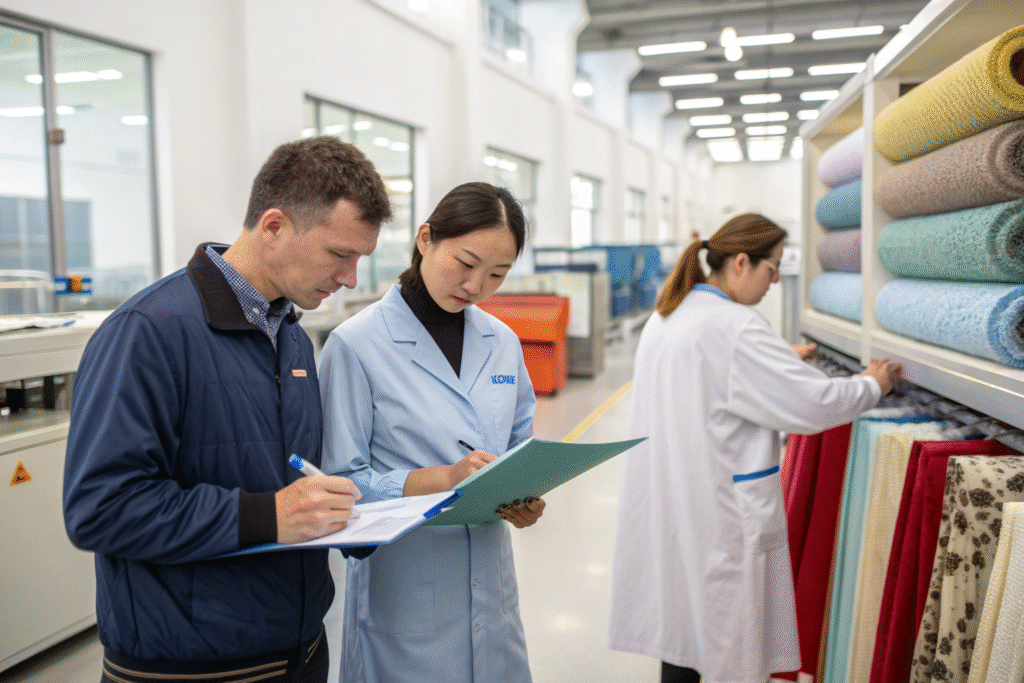
How to evaluate suppliers?
- Ask for CNAS, SGS, or ITS accredited test reports referencing ISO 13994.
- Verify batch consistency (a one-time certificate is not enough).
- Ensure suppliers provide technical datasheets including: permeability index, pressure test values, and chemical compatibility charts.
Useful resource: SGS Textile Testing Services.
Common sourcing channels
- Trade shows such as Techtextil in Germany, where in 2024 more than 1,600 exhibitors showcased protective textiles.
- B2B platforms like Alibaba Safety Fabrics, where over 500 verified suppliers list their ISO tested materials.
- Direct factory visits in clusters like Keqiao, where specialized coating and lamination factories operate with annual outputs of 80,000+ tons of technical fabrics.
A buyer from Houston reported reducing sourcing costs by 20% after shifting from European-only suppliers to a dual supply model combining Chinese and German certified mills. This demonstrates the benefit of exploring multiple sourcing hubs.
What Questions Should Buyers Ask Before Placing Orders?
Even if a supplier claims ISO 13994 compliance, the real challenge is due diligence. Asking the right questions helps avoid delays, rejections, or unsafe deliveries.
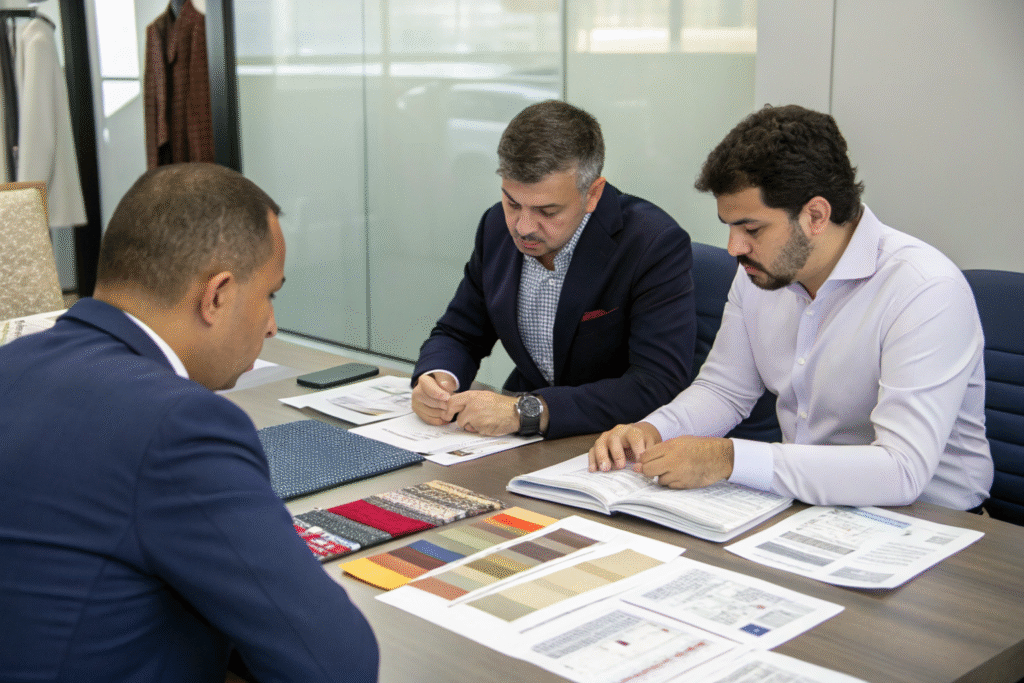
Key buyer questions:
- Can you provide third-party lab test reports dated within the last 12 months?
- Are your fabrics also tested under related standards like EN 14325 or ASTM F739?
- What is your MOQ (minimum order quantity) for specialty fabrics?
- Do you offer sample swatches for permeability testing before bulk purchase?
- What are your logistics and export timelines, especially for urgent PPE projects?
In practice, asking these questions avoids costly mistakes. For example, one U.S. safety gear importer avoided a $500,000 loss when it discovered the supplier’s certificates were outdated and not ISO 13994-compliant. On the other hand, a Singapore distributor secured a five-year government tender worth $3 million because they verified certification across multiple standards before confirming the order.
Practical tip
Combine price comparison with technical validation. Some suppliers may undercut costs but skip full certification. Paying slightly more for a verified supplier reduces overall risk in long-term procurement.
Useful references: ASTM F739 Chemical Permeation Testing, European Safety Federation Guidance.
Conclusion
Sourcing ISO 13994 tested chemical permeation fabrics is not simply about finding a fabric mill. It is about partnering with a supplier who can provide certification-backed safety, consistent production, and reliable delivery. Buyers in high-risk industries must demand up-to-date third-party test reports, verify compliance with international PPE standards, and evaluate the supplier’s track record in exporting regulated products.
At Fumao Fabric, we specialize in developing protective, eco-friendly, and functional textiles with full CNAS-accredited ISO testing support. If you are sourcing certified fabrics for protective clothing, we invite you to partner with us. You can reach our Business Director Elaine at elaine@fumaoclothing.com to discuss your fabric requirements and custom solutions for your business.
